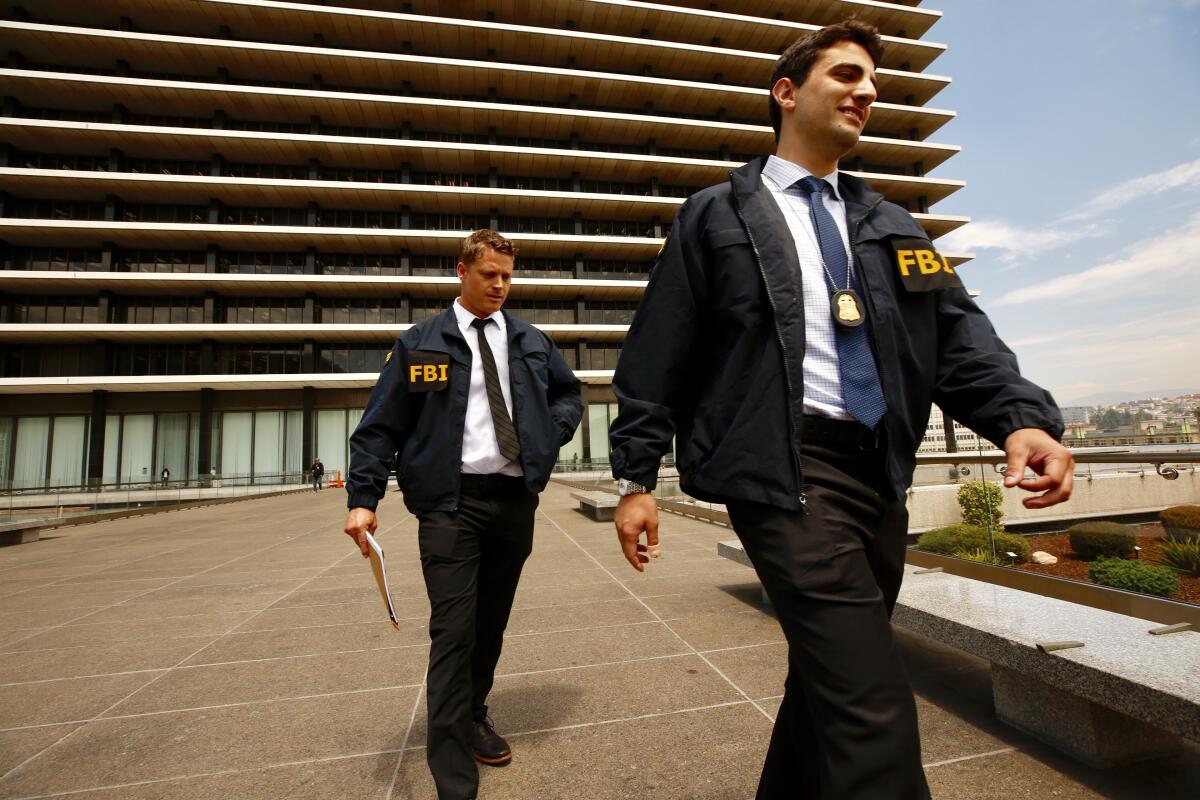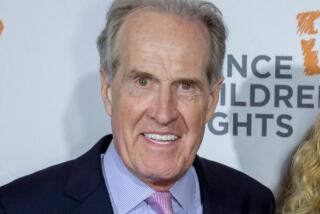State Bar charges L.A. lawyer in DWP scandal

- Share via
The State Bar of California filed disciplinary charges this week against a Tarzana attorney for his role in an alleged scheme to engineer a sham multimillion-dollar lawsuit and settlement with the Los Angeles Department of Water and Power.
The State Bar accused Michael Libman of colluding with city lawyers at the same time that he was suing the city on behalf of his client, a disgruntled DWP customer named Antwon Jones.
The sue-and-settle scheme was done in a way that benefited the city, lined Libman’s pockets, kept Jones in the dark about what was occurring and ultimately violated the ethics code that attorneys must abide by, according to State Bar prosecutors.
“California attorneys are bound by law to act in the best interests of their clients, free from conflicts that might lead them to favor others or themselves over their clients,” the State Bar’s top prosecutor, Chief Trial Counsel George Cardona, said in a statement Thursday announcing the charges.
The disciplinary action is the latest twist in a DWP corruption saga that largely centered on the role of the L.A. city attorney’s office and how its lawyers responded to litigation over a faulty billing system.
The scandal, dubbed an “incredibly sordid affair” by the federal judge who oversaw the criminal case, resulted in four people, including three top city employees, pleading guilty to various crimes.
“I am disappointed that the State Bar filed charges against me in this politicized LADWP case driven by vindictive, corrupt and connected lawyers bent on railroading me,” Libman told The Times on Thursday. “If I will get a fair trial that allows me to present all the evidence, I will be fully vindicated and the true scale of the layers of corruption further exposed.”
Libman was not charged by federal prosecutors and was not alleged to be the mastermind of the collusion scheme.
But Libman served as the California-based counsel to Jones, the lead plaintiff in the “collusive” lawsuit. Jones had received an inflated DWP bill and sued the city, ultimately resulting in a $67-million settlement to him and other DWP customers. About $19 million in attorneys fees were paid out, including more than $1.6 million to Libman.
The charges portray Libman as a puppet of the city’s lawyers, taking instructions from his adversary about how to represent his client.
Among the allegations: that Libman put his letterhead and signature on a claim that the city’s lawyers had prepared; that the city’s lawyers ghostwrote the lawsuit; and that the settlement agreements in the case were also prepared by the city’s lawyers.
Jones was under the impression that independent counsel was representing him and other class members. But prosecutors allege that Libman was compromised by “extreme conflicts.”
Further, the State Bar alleges that Libman came to represent Jones after a member of the L.A. city attorney’s office directed two outside lawyers, Paul Kiesel and Paul Paradis, “to find outside counsel friendly to the City and its goals” to represent Jones, according to the State Bar.
By orchestrating the suit and settlement, the Jones lawsuit thereby became a mechanism to tightly and cleanly settle all claims on terms that were favorable to the city, prosecutors say.
The misrepresentations extended beyond his relationship to his client, with prosecutors accusing him of also concealing this collusion from the state judge who ultimately signed off on the $67-million settlement.
That judge ultimately ordered Libman to return his $1.65-million fee. In December, an appellate court upheld the lower court, finding that “the egregious nature of Libman’s ethical violations in this case supported complete forfeiture of the fees that he received,” according to an opinion by Justice Carl H. Moor.
In the criminal probe of the DWP scandal, Paradis pleaded guilty to one count of bribery, and in November a federal judge sentenced him to 33 months in prison. Kiesel was never charged.
Libman’s case will proceed in State Bar court, which adjudicates attorneys’ conduct and ethical issues, with potential penalties including disbarment or temporary suspension from practicing law.
Times staff writer Dakota Smith contributed to this report.
More to Read
Sign up for Essential California
The most important California stories and recommendations in your inbox every morning.
You may occasionally receive promotional content from the Los Angeles Times.














